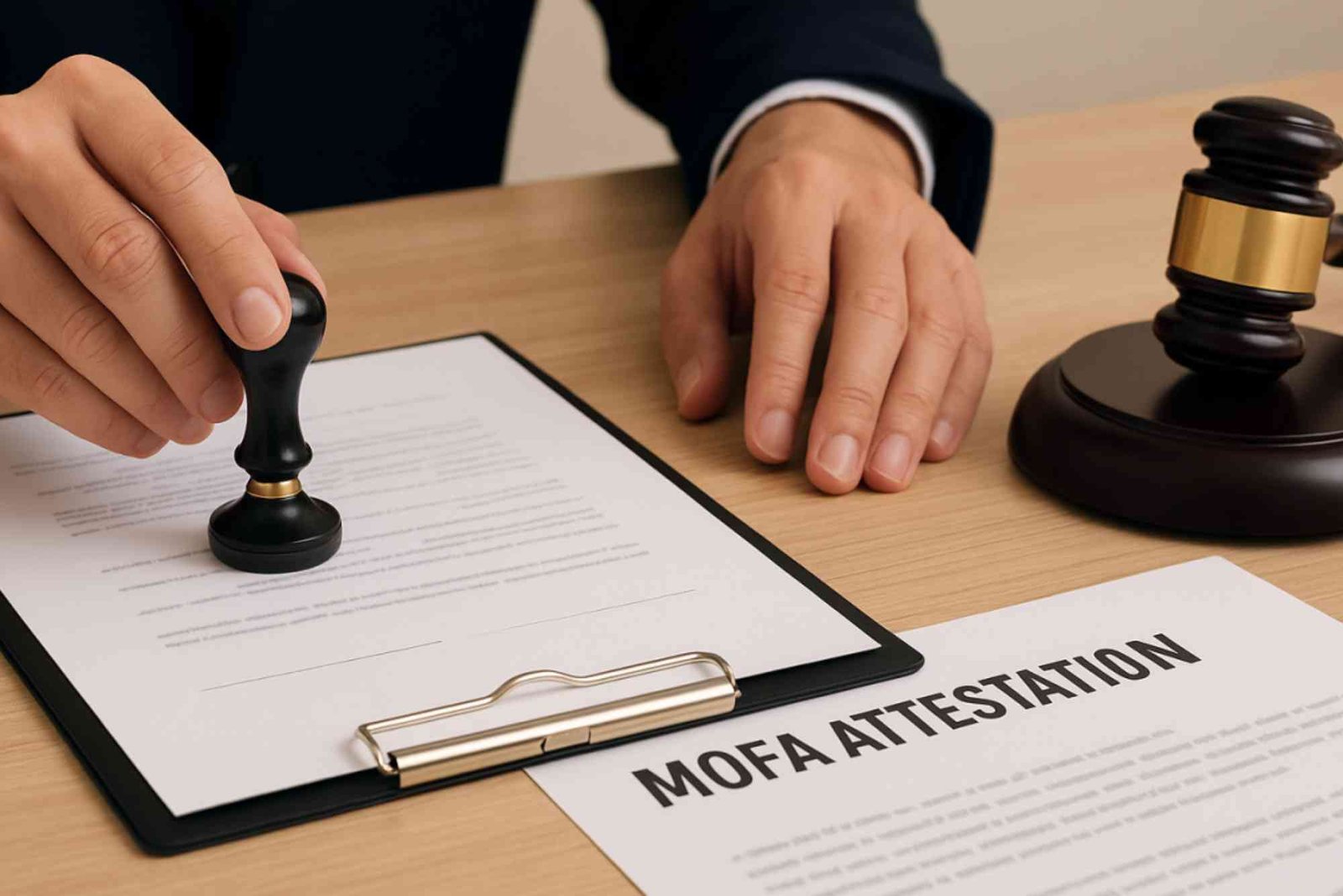When a person decides to challenge a court decision, one of the most common questions they ask is: “How long will the appeal process take?” Unfortunately, there’s no simple, one-size-fits-all answer. The duration of an appeal depends on many factors—such as the complexity of the case, the number of issues raised, and the workload of the appellate court.
This guide provides a comprehensive explanation of the timelines involved in filing and resolving an appeal, what affects those timelines, and what you can expect during each stage of the process. It also highlights how Lawyers in Dubai can help manage your appeal efficiently and minimize unnecessary delays.
Understanding the Appeal Timeline
An appeal is a legal process that asks a higher court to review the decision of a lower court. Unlike a trial, which focuses on facts and evidence, an appeal examines whether the trial was conducted correctly under the law.
Because appellate judges must carefully review documents, transcripts, and legal arguments, appeals often take significantly longer than many people expect.
In general, the appeals process can take anywhere from a few months to more than a year, depending on the jurisdiction and complexity of the case.
Here’s a broad overview:
| Stage of Appeal | Estimated Duration | Description |
| Filing Notice of Appeal | 1–2 weeks | The initial document notifying the court and opposing party of your intent to appeal. |
| Preparation of Record | 1–3 months | Compilation of all trial documents, transcripts, and evidence. |
| Submission of Briefs | 2–4 months | Each party files written arguments explaining their position. |
| Oral Arguments (if applicable) | 1 day to several weeks (depending on scheduling) | Lawyers present their case before appellate judges. |
| Judicial Review and Decision | 3–9 months | The court studies the case and issues a written ruling. |
These are general estimates; each case varies depending on multiple procedural and administrative factors.
Factors That Influence How Long an Appeal Takes
Complexity of the Case
Cases involving multiple charges, lengthy trials, or detailed records naturally take longer to review. For instance, a simple sentencing appeal may be resolved within months, while a full criminal appeal involving several witnesses and hundreds of pages of transcripts could take a year or more.
Volume of Evidence and Documentation
The appellate court bases its review on the record from the trial court. If the trial produced a large amount of evidence—documents, exhibits, video recordings, or extensive witness testimony—it will take longer for the court and your legal team to review and analyze these materials.
Number of Legal Issues Raised
Appeals that focus on one or two clear legal errors are faster to resolve than appeals that challenge multiple aspects of the trial. Each issue raised requires detailed legal research, written arguments, and judicial consideration.
Court Backlog and Scheduling
The availability of judges and the workload of the appellate court also affect how quickly an appeal progresses. Courts with heavy caseloads often have longer waiting periods before hearings or rulings.
Administrative and Procedural Delays
Sometimes, delays occur due to incomplete documentation, missed deadlines, or procedural errors in filing. Working with experienced legal counsel helps prevent such mistakes and ensures the process runs as smoothly as possible.
Whether Oral Arguments Are Required
Some appeals are decided based solely on written submissions. Others require oral arguments before the judges, which can delay the process due to scheduling constraints.
Further Appeals
If a party is dissatisfied with the appellate court’s decision, they may appeal again to a higher court (such as a supreme or cassation court). This second level of appeal adds several months—or even years—to the total process.
Average Appeal Duration by Type of Case
While timelines vary by jurisdiction, here’s a general guide to how long different types of appeals might take:
Criminal Appeals: 6 to 18 months (depending on the seriousness of the charges and whether a retrial is requested).
Civil Appeals: 6 to 12 months (depending on the number of legal and factual disputes).
Family Law Appeals: 4 to 8 months (often expedited due to the personal nature of the issues).
Commercial or Corporate Appeals: 8 to 24 months (complexity and financial implications can prolong the review).
These timelines are approximate and can vary significantly depending on local laws and court efficiency.
Why Appeals Take Time
The appellate process is deliberately designed to be thorough and meticulous. Unlike a trial, where the focus is on proving facts, an appeal scrutinizes the legality and fairness of the previous proceedings.
This involves:
Reading extensive trial transcripts and evidence.
Researching relevant laws and precedents.
Writing detailed judgments that may influence future cases.
Judges are careful to ensure that each appeal is given due consideration, as appellate decisions often set important legal precedents. Therefore, patience and persistence are essential qualities for anyone going through this process.
Step-by-Step Breakdown of the Appeal Process and Timeline
Filing the Notice of Appeal (1–2 Weeks)
Once a verdict or sentence is issued, the appellant (the person appealing) has a limited time—often 7 to 30 days—to file a notice of appeal. Missing this deadline can result in losing the right to appeal entirely.
Your lawyer will draft the notice, submit it to the court, and notify the opposing party. After submission, the court records the appeal and begins preparing the case file.
Preparing the Record (1–3 Months)
The trial court clerk compiles the full case record, including all documents, evidence, transcripts, and the final judgment. This can take several weeks or months, especially for complex cases.
Once complete, the record is transmitted to the appellate court for review.
Drafting and Submitting Legal Briefs (2–4 Months)
This stage takes the most time because it involves legal analysis and writing.
The appellant’s brief explains the reasons for the appeal and identifies errors in the trial.
The respondent’s brief (from the opposing party) defends the original judgment.
Sometimes, the appellant files a reply brief addressing new points raised by the respondent.
These briefs are critical, as the appellate court often decides cases based on their written arguments alone.
Scheduling and Conducting Oral Arguments (If Needed)
After both sides submit their briefs, the appellate court may schedule oral arguments. This can happen within weeks or months, depending on the court’s calendar.
During oral arguments, each side’s lawyer presents their case and answers questions from the judges. These sessions are usually brief but can be pivotal in influencing the court’s final decision.
Judicial Deliberation and Decision (3–9 Months)
After the hearings, the appellate judges begin their review. They examine the case file, study the written briefs, and deliberate on the legal issues.
This stage can take months, as the judges must write a detailed opinion explaining their ruling. Once the decision is finalized, it is formally announced in a written judgment.
Implementation or Further Appeal
If the appeal is successful, the case may be remanded to the lower court for a new trial, or the sentence may be modified. If unsuccessful, the appellant can sometimes take the case to a higher court, which extends the timeline further.
Can the Appeal Process Be Shortened?
While it’s impossible to completely eliminate the waiting period, there are several ways to avoid unnecessary delays:
Hire experienced appellate lawyers: Skilled legal counsel can ensure all filings, briefs, and procedural steps are completed correctly and on time.
Organize documentation early: Preparing transcripts, exhibits, and legal arguments in advance speeds up the process.
Avoid procedural errors: Small mistakes—like missing a deadline or failing to include required documents—can cause major setbacks.
Request expedited consideration: In some cases, especially involving urgent matters (such as child custody or business injunctions), courts may grant an accelerated review.
Communicate regularly with your lawyer: Staying informed and proactive helps ensure your case stays on track.
What to Expect During the Waiting Period
Appeals often involve long periods of waiting, during which there may be little visible activity. This doesn’t mean nothing is happening—judges and court clerks are working behind the scenes to process documents, review evidence, and draft rulings.
During this time:
Maintain contact with your lawyer for updates.
Follow any court orders or conditions (such as bail restrictions).
Prepare emotionally and practically for all possible outcomes.
Patience and preparation can make the waiting period less stressful and more productive.
The Role of Lawyers in Dubai in Managing Appeal Timelines
Navigating the appeals process in Dubai and the wider UAE requires an in-depth understanding of both procedural rules and local legal culture. Experienced Lawyers in Dubai can help ensure your appeal proceeds as efficiently as possible by:
Filing all paperwork accurately and within legal deadlines.
Coordinating with court clerks and officials to track case progress.
Preparing clear and persuasive written arguments.
Advising clients on realistic timelines and potential delays.
Seeking interim reliefs such as bail or sentence suspension during the appeal.
Having a competent lawyer not only increases your chances of success but also prevents unnecessary procedural delays that can prolong the process.
Common Mistakes That Delay Appeals
Many appellants unintentionally cause delays by making avoidable mistakes. Common issues include:
Submitting incomplete or incorrect paperwork.
Failing to pay filing fees on time.
Not following proper court formats.
Attempting to introduce new evidence without permission.
Changing lawyers midway through the appeal, which disrupts continuity.
Avoiding these pitfalls through careful planning and experienced legal support ensures your case proceeds as smoothly as possible.
Managing Expectations: The Reality of Appeals
While it’s natural to want a quick resolution, the appeals process is designed to ensure fairness, not speed. Every case must be handled with precision, as appellate rulings often set important precedents that influence future cases.
Even though appeals can take months or years, they offer an invaluable opportunity to correct legal mistakes and secure justice. Understanding that thoroughness takes time can help manage expectations and reduce frustration during the process.
Conclusion
The length of an appeal depends on a range of legal and procedural factors, from the complexity of the case to the workload of the courts. While some appeals are resolved within a few months, others can take a year or longer.
Patience, preparation, and professional legal representation are the keys to navigating this journey successfully. By staying informed, following court procedures carefully, and working closely with experienced Lawyers in Dubai, you can ensure your appeal moves forward efficiently while safeguarding your rights and interests.
Ultimately, while time is an unavoidable aspect of the appellate process, persistence and proper legal guidance often lead to the justice you seek.









